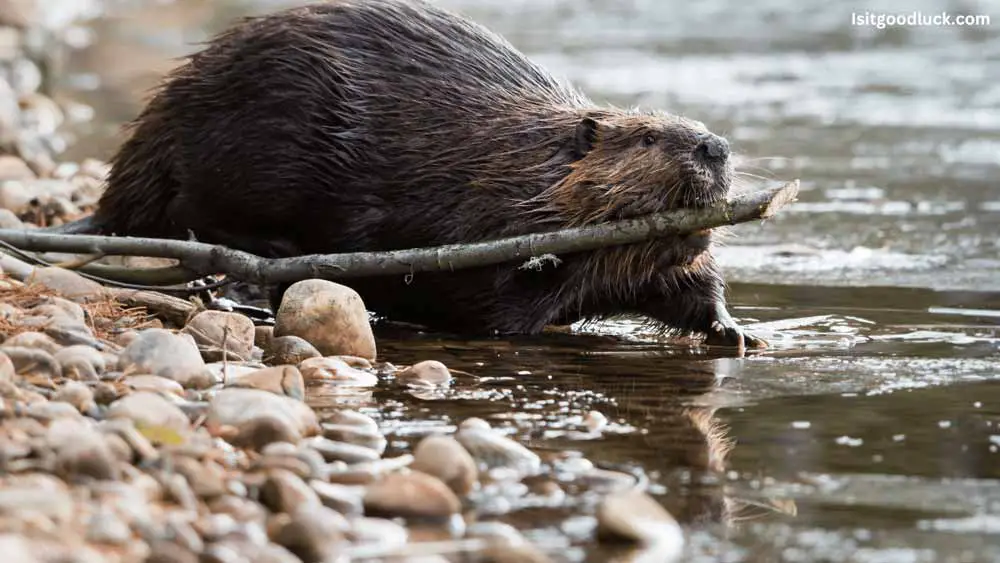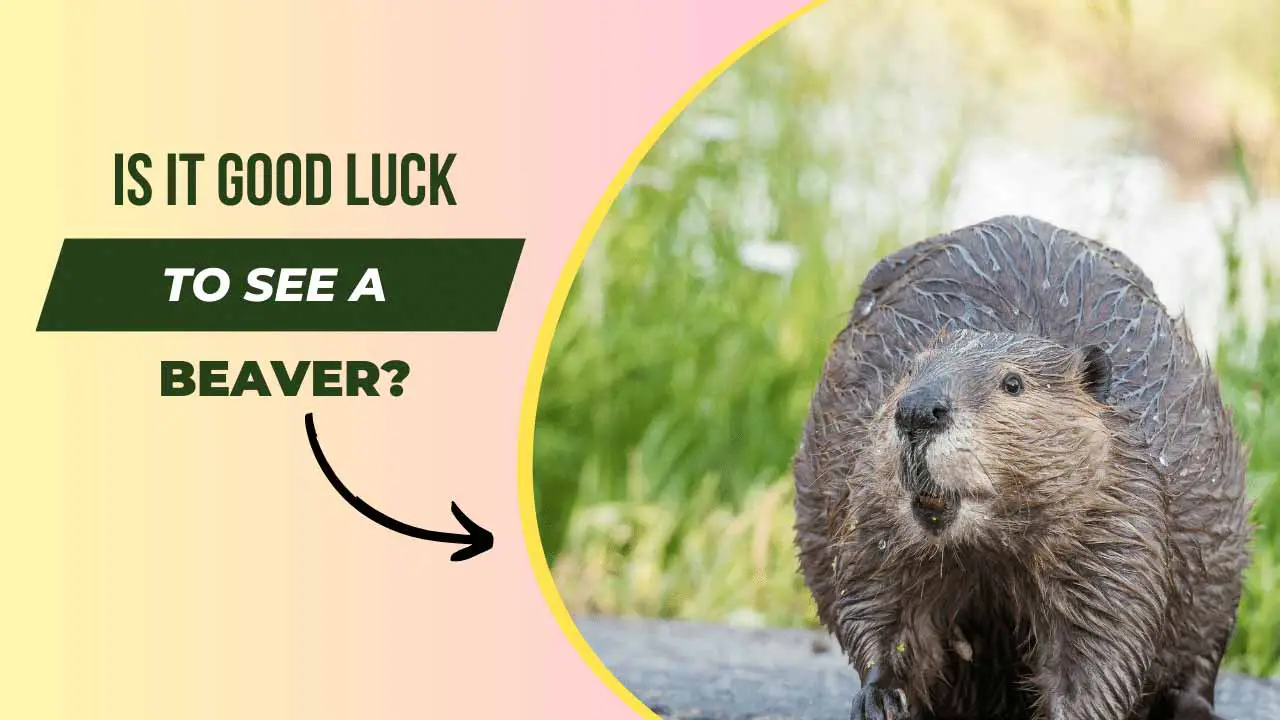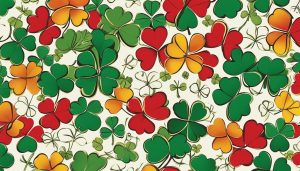Hello there, curious reader! Have you ever crossed paths with a beaver and wondered if this industrious creature carries any special significance? If you’re a nature enthusiast, an admirer of folklore, or if you’ve just got a curious mind, you’ve landed on the right page.
In today’s blog post, we’re embarking on a unique journey to discover the possible connections between the sighting of a beaver and good luck.
We’ll delve into fascinating tales, cultural symbols, and age-old beliefs that crisscross different societies, from Native American tribes to European folklore. We’ll even peer into the realms of modern symbolism and wildlife interpretation.
But let’s pause for a moment! Do these water-loving, dam-building critters portend good luck, or is it just fanciful folklore? Could there be more to this tail-slapping creature than meets the eye? To unravel these questions, we invite you to join us as we navigate the fascinating cross-currents of symbolism, culture, and natural history.
So, if you’re ready to see beavers in a whole new light or simply a sucker for an interesting tale (no pun intended), keep reading. By the end of this post, you might just find yourself hoping to see a beaver on your next nature walk!
Contents
- 1 Understanding Beavers: Masters of Engineering in the Wild
- 2 Native American Traditions and European Folklore on Beavers:
- 3 Is it good luck to see a beaver?
- 4 Scientific Perspective on Beaver and Good Luck:
- 5 Conclusion:
- 6 FAQs
- 6.1 Are there specific cultures or regions where beavers are especially lucky?
- 6.2 Do beavers appear in any religious or spiritual contexts?
- 6.3 Can seeing a beaver in a dream have any specific meaning?
- 6.4 Are there any superstitions or beliefs about beaver-related artifacts or objects?
- 6.5 Are there any negative beliefs or superstitions associated with beavers?
Understanding Beavers: Masters of Engineering in the Wild
Before we delve deeper into the cultural and symbolic associations with beavers, we must get to know these intriguing creatures better. Familiarizing ourselves with their behaviors, habitats, and roles within their ecosystems will help us truly appreciate why they’ve made such an impact on human societies across the globe.
Beavers, belonging to the family Castoridae, are renowned as nature’s engineers due to their remarkable dam-building skills. These semi-aquatic mammals are native to North America and Europe and are divided into two species: the North American beaver (Castor canadensis) and the Eurasian beaver (Castor fiber).
With bodies adeptly designed for life in the water, beavers are most commonly found in rivers, marshes, and streams. Their distinctive flat tails are used for balance when carrying building materials, and their webbed feet make them powerful swimmers, capable of staying submerged for up to 15 minutes!
Also read: Is It Good Luck To See A Centipede?
But what truly sets beavers apart is their habit of building dams and lodges. These structures are created from timber and mud and serve as protection against predators and a way to access food during winter.
The transformation a single beaver family can bring to their habitat is astounding. They create wetlands that support an astonishing variety of life, from plants to birds, insects, and fish.
In essence, beavers are not just ordinary animals living out their lives. They are dynamic ecosystem engineers pivotal in landscape management and biological diversity.
Their engineering projects increase biodiversity, regulate water flow, and even sequester carbon, making them an important ally in mitigating climate change.
Understanding the ecological significance of beavers sets the foundation for our exploration of their symbolic relevance. As we move forward, we’ll uncover how these ecological nuances interplay with the cultural and folkloric interpretations of beavers.
Native American Traditions and European Folklore on Beavers:
To fully appreciate the symbolism of the beaver, we need to cast our eyes back in time and across different cultures. Two realms that offer rich insight into this are the traditions of Native American tribes and the folklore of Europe.
In Native American Traditions: Builders of Life and Symbols of Resilience
Within the tapestry of Native American beliefs, the beaver holds a prominent place. Many tribes, particularly in areas with abundant beaver populations, attribute significant characteristics and traits to these diligent creatures.
The beaver is widely recognized as a symbol of hard work, determination, and resourcefulness. Known for their perseverance, beavers create intricate dam systems, a testament to their engineering prowess—a trait deeply revered by these cultures. The industrious beaver embodies the principle that hard work leads to prosperity and a harmonious life.
In certain tribes, the beaver also carries spiritual significance. It is seen as a builder of life, mirroring how these creatures transform their environments to support many other species.
Beaver spirits or totems are thus believed to guide individuals in constructing their paths, helping them build lives full of purpose and vitality.
Within European Folklore: Emblems of Virtue and Craftsmanship
Traversing to the European continent, we find more fascinating threads connecting beavers to humans. The ancient Greeks and Romans perceived beavers in a unique light. An animal noted for its dynamic nature became a symbol of craftsmanship and virtue.
There’s a famous story in Greek natural history where the beaver, to escape a hunter, bites off its testicles (mistakenly believed to have medicinal properties) and throws them to the hunter, illustrating the virtue of wisdom over bodily desires.
In Medieval Europe, the beaver was included in bestiaries, encyclopedic texts that associated animals with Christian morals. The beaver was portrayed as an animal that would self-mutilate to save its life, symbolizing the idea of repentance and redemption.
Whether symbolizing the hard-working builder or embodying the virtues of self-sacrifice, the beaver has woven itself into the fabric of human culture and folklore in fascinating ways.
As we explore, these historical insights will shape our understanding of the link between beavers and the intriguing concept of luck.
Also read: Is it good luck to see a deer?

Is it good luck to see a beaver?
Now that we’ve delved into the world of beavers and understood their significant role in history, culture, and ecosystems, it’s time to address the intriguing question that brought us here: Is it good luck to see a beaver?
The concept of luck is often subjective, shaped by various cultural, historical, and personal factors. Regarding beavers, different cultures have unique interpretations that connect these creatures to notions of fortune and prosperity.
In some cultures, spotting a beaver signifies upcoming success, particularly during dam construction. This is often attributed to the beaver’s symbolic representation of hard work, determination, and ingenuity.
The logic is simple: just as a beaver’s diligent work results in a protective dam, human endeavors can also lead to fruitful outcomes. Thus, a beaver sighting might serve as a reminder or a motivator to persevere in one’s efforts, potentially leading to what we often consider “good luck.”
Interestingly, dream interpretation also presents an intriguing connection between beavers and positive outcomes. Dreaming of a beaver is generally perceived as a good omen, especially in the context of one’s work or personal projects. It symbolizes the need for teamwork, hard work, or persistence, highlighting that success is within reach if one remains determined.
Yet, it’s essential to remember that these interpretations are steeped in symbolism, personal beliefs, and cultural perspectives. They aren’t universal and certainly don’t form hard and fast rules.
For the scientifically-minded, seeing a beaver can indicate a healthy ecosystem, a reminder of the natural world’s resilience and beauty, which can be considered a stroke of good luck.
In our exploration, it’s clear that beavers hold a significant place in our human narrative, intertwined with our perception of luck, success, and the world around us. Let’s look at how these diligent creatures influence modern symbolism and contemporary perspectives as we continue.
Scientific Perspective on Beaver and Good Luck:
We’ve navigated through layers of folklore, symbolism, and cultural interpretations in our journey. Now, let’s turn to science, which offers a different lens to view our question: Is it good luck to see a beaver?
Scientifically speaking, luck is a human concept and has no direct bearing on animal behavior or biology. Like any other creatures, Beavers aren’t inherently carriers of fortune or prosperity.
Biological imperatives, not mystical forces, guide their actions and behaviors. However, that doesn’t mean the end of our exploration.
Looking closely, we find that beavers often signify a robust, healthy ecosystem. Beavers are known as a “keystone species”—a species that disproportionately affects its environment relative to its abundance.
Through their dam-building activities, beavers create diverse wetland habitats, contributing to increased biodiversity and providing a home for many species.
Their dams can also help slow down water flow, reducing the risks of floods and ensuring a steady water supply during drier periods. This ability to shape and nurture their environment makes beavers an ecological boon. From this perspective, seeing a beaver might be a sign of “good luck,” a testament to the vitality of the surrounding ecosystem.
Moreover, beavers can positively contribute to mitigating climate change by enhancing wetland areas capable of storing large amounts of carbon, a crucial factor in combating global warming. Spotting a beaver could be a reassuring sign of nature’s resilience in environmental challenges.
So, while beavers don’t scientifically bring luck in the traditional sense, their presence and activity signify something quite precious: the health and well-being of our shared planet. In the grand scheme, that’s a kind of luck worth cherishing.
Conclusion:
As we reach the end of our exploration, we return to our original question: Is it good luck to see a beaver? We’ve navigated through centuries of history, unraveled cultural interpretations, dived into the world of dreams, and even ventured into science. And what have we found?
In truth, the answer is as diverse and complex as the beaver’s dam. If we seek meaning in cultural symbols and historical narratives, spotting a beaver can be seen as a sign of good luck. It can symbolize impending success, a reminder to persevere in our endeavors, or even a cue to appreciate the beauty of the world around us.
From a scientific viewpoint, seeing a beaver might not foretell personal fortune. However, it does signify the health and resilience of our shared ecosystem—a sight that, in an age of environmental challenges, can feel exceptionally lucky.
In essence, the beaver’s tale is a testament to the interconnectedness of life on this planet. It reminds us of the profound impact of one species on its environment and how these ripples of influence can touch human lives in unexpected ways, even shaping our notions of luck.
So, keep an eye out for the beaver whether you find yourself scanning the water’s edge on your next nature walk or pausing to appreciate the natural world in your backyard.
Whether or not you consider it good luck might depend on your perspective, but one thing is certain: the sight of a beaver—nature’s diligent engineer—is bound to make your day a little more special. And isn’t that a wonderful kind of luck after all?
Also read other articles regarding animals good luck
FAQs
Are there specific cultures or regions where beavers are especially lucky?
Certain cultures and regions have a stronger association with beavers and luck. Native American tribes, particularly those in areas with abundant beaver populations, often view beavers as symbols of hard work and prosperity. Additionally, regions with a strong historical connection to beavers, such as parts of Canada and Europe, may have folklore and beliefs highlighting the luck or positive outcomes associated with beavers.
Do beavers appear in any religious or spiritual contexts?
While beavers don’t play a prominent role in major religious systems, they hold significance in certain Native American spiritual traditions. In these contexts, beavers may be considered spiritual guides or totems, representing qualities such as hard work, determination, and the power of transformation.
Can seeing a beaver in a dream have any specific meaning?
In dream interpretation, seeing a beaver can symbolize the need for teamwork, hard work, or persistence in one’s personal or professional life. Dreams featuring beavers often suggest that success is within reach if one remains diligent and focused on their goals.
While specific superstitions or beliefs about beaver-related artifacts may vary, beaver-related objects, such as teeth or fur, have historically been prized for their perceived qualities. In some cultures, beaver teeth were believed to have medicinal properties or were used as charms for good luck or protection.
Are there any negative beliefs or superstitions associated with beavers?
While beavers are generally associated with positive qualities and luck, there aren’t prevalent negative beliefs or superstitions directly tied to beavers themselves. However, like many animals, they may be subject to negative beliefs or misconceptions in certain cultural contexts or specific folktales.





